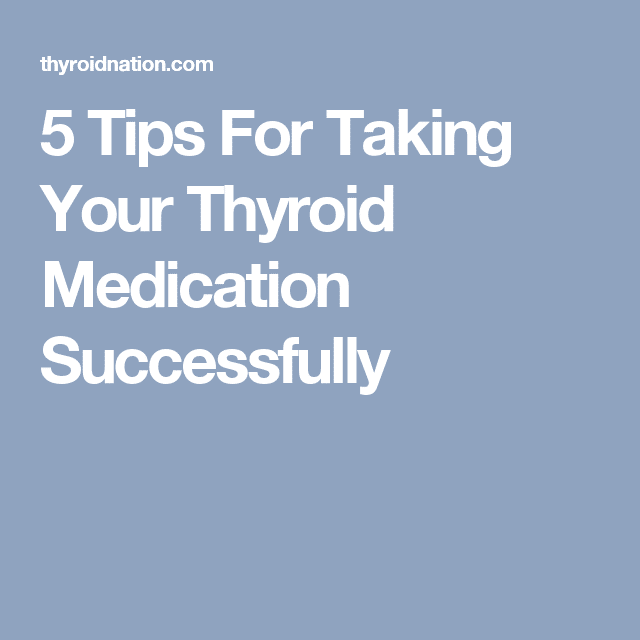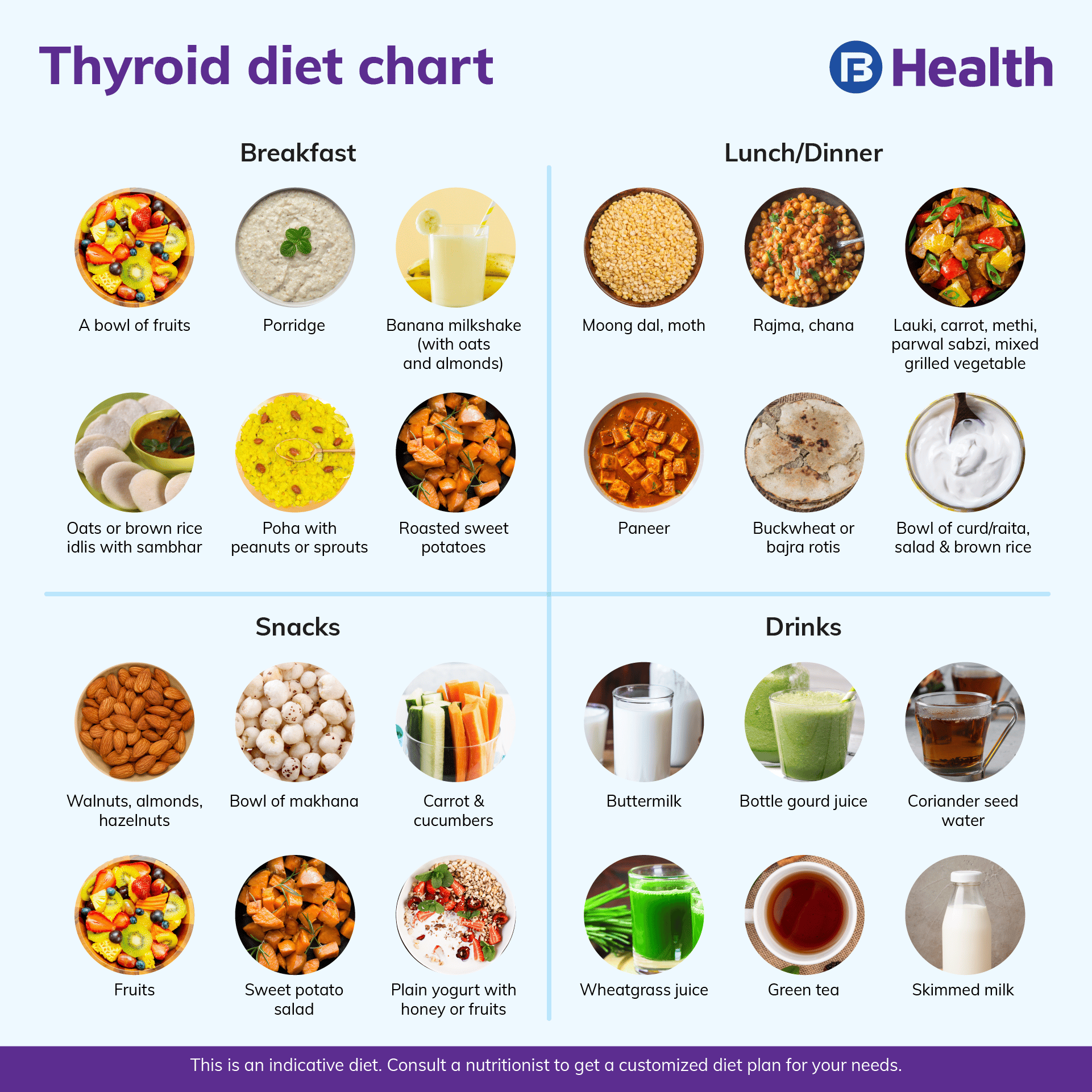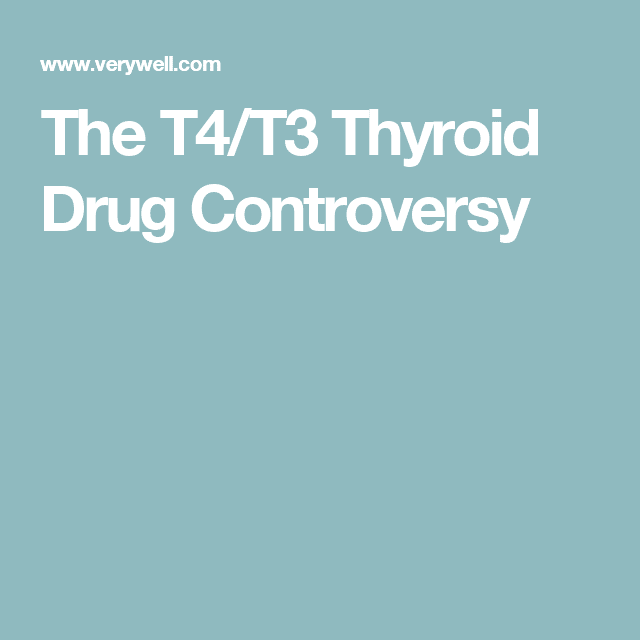Synthetic T4 Hormones To Replace Insufficient Thyroid Hormones
Hypothyroidism is most commonly treated with thyroid hormone replacement therapy, and the most effective way to treat hypothyroidism is with synthetic T4 medication. While these hormones are identical to the natural T4 that the thyroid makes, several factors can affect the exact dosage you need. These include your age, the severity of symptoms, and your overall health profile.
Synthetic T4 is available in a prescription medication called levothyroxine, sold under brand names such as Levothroid and Synthroid. There are many generic versions available, too. Youll want to take care in switching back and forth between brands, as there may be slight variations in doses.
When you first start taking prescription thyroxine hormones, your doctor will prescribe a dosage based on your weight and your blood test results for TSH and free T4 levels. Children, teenagers, and the elderly generally require smaller doses.
You May Like: How To Check The Thyroid
How Is Hypothyroidism Treated
In most cases, hypothyroidism is treated by replacing the amount of hormone that your thyroid is no longer making. This is typically done with a medication. One medication that is commonly used is called levothyroxine. Taken orally, this medication increases the amount of thyroid hormone your body produces, evening out your levels.
Hypothyroidism is a manageable disease. However, you will need to continuously take medication to normalize the amount of hormones in your body for the rest of your life. With careful management, and follow-up appointments with your healthcare provider to make sure your treatment is working properly, you can lead a normal and healthy life.
What Are Clinical Trials For Hypothyroidism
Clinical trialsand other types of clinical studiesare part of medical research and involve people like you. When you volunteer to take part in a clinical study, you help doctors and researchers learn more about disease and improve health care for people in the future.
Researchers are studying many aspects of hypothyroidism, such as
- understanding how the disease progresses, its clinical presentation, and genetics
- investigating how effective and safe levothyroxine is for people with chronic kidney disease
Recommended Reading: What Are Thyroid Blood Tests Called
How Do Doctors Diagnose Hypothyroidism
Your doctor will take your medical history and perform a physical exam. A hypothyroidism diagnosis cant be based on symptoms alone because many of its symptoms are the same as those of other diseases.1 Thats why your doctor may use several thyroid blood tests and imaging tests to confirm the diagnosis and find its cause.
Because hypothyroidism can cause fertility problems, women who have trouble getting pregnant often get tested for thyroid problems.
You May Like: Radiofrequency Ablation Thyroid Nodule Cost
What Alternative Treatments May Help Hypothyroidism

Besides standard thyroid medications, animal extracts that contain thyroid hormone are also available. These extracts come from the thyroid glands of pigs. They contain both T4 and triiodothyronine .
If you take levothyroxine, youre only receiving T4. However, thats all you need because your body is capable of producing T3 from the synthetic T4.
Research has found medications with animal extracts to be similar to levothyroxine. Other studies have indicated that taking animal thyroid extract may reduce thyroid symptoms but cause more side effects. Currently, animal thyroid extracts arent routinely recommended.
You can also buy glandular extract supplements in some health food stores. Additionally, studies suggest that selenium supplements may help people with hypothyroidism caused by autoimmune disease, though research is mixed.
Note that dietary supplements arent regulated as drugs by the Food and Drug Administration . Because of this, their potency, legitimacy, and purity arent guaranteed.
Use these products at your own risk. Its important to tell your doctor if you decide to try a supplement so they can adjust your treatment accordingly.
- mental health issues, like anxiety and depression
- is still being studied, and moderate weight gain is most likely
- high cholesterol
- preeclampsia and anemia during pregnancy
Its especially important for caregivers to monitor the soy intake of infants who need hypothyroidism treatment and also drink soy formula.
Don’t Miss: Radioactive Treatment For Thyroid Nodule
Warning Disclaimer Use For Publication
WARNING: Please DO NOT STOP MEDICATIONS without first consulting a physician since doing so could be hazardous to your health.
DISCLAIMER: All material available on eHealthMe.com is for informational purposes only, and is not a substitute for medical advice, diagnosis, or treatment provided by a qualified healthcare provider. All information is observation-only. Our phase IV clinical studies alone cannot establish cause-effect relationship. Different individuals may respond to medication in different ways. Every effort has been made to ensure that all information is accurate, up-to-date, and complete, but no guarantee is made to that effect. The use of the eHealthMe site and its content is at your own risk.
If you use this eHealthMe study on publication, please acknowledge it with a citation: study title, URL, accessed date.
Treating An Underactive Thyroid
Treatment for an underactive thyroid involves taking daily hormone replacement tablets, called levothyroxine, to raise your thyroxine levels. You’ll usually need treatment for the rest of your life. However, with proper treatment, you should be able to lead a normal, healthy life.
If an underactive thyroid isn’t treated, it can lead to complications, including heart disease, goitre, pregnancy problems and a life-threatening condition called myxoedema coma .
Read more about treating an underactive thyroid and the complications of an underactive thyroid
Don’t Miss: Vitamins To Increase Thyroid Function
If An Underactive Thyroid Isn’t Treated
It’s unlikely that you’d have many of the later symptoms of an underactive thyroid, because the condition is often identified before more serious symptoms appear.
Later symptoms of an underactive thyroid include:
- a low-pitched and hoarse voice
- a puffy-looking face
- thinned or partly missing eyebrows
- a slow heart rate
What Medications Can Be Used
The main medications used for the treatment of an overactive thyroid are known as anti-thyroid drugs. These reduce the production of thyroid hormones. Thiamazole and carbimazole are the most commonly used anti-thyroid drugs. If these drugs arent tolerated, propylthiouracil is sometimes used. Its always a good idea to discuss the benefits and drawbacks of these drugs with your doctor. The most common side effects of anti-thyroids include skin rashes, fever and joint problems. If a fever arises, its important to see a doctor immediately because the fever could be a sign of a blood disorder although this is rare.
Sometimes a medication called perchlorate is used instead. Perchlorate prevents iodine from being absorbed by the thyroid gland. Iodine is a trace element that the thyroid gland needs in order to produce hormones. An overactive thyroid that has access to a lot of iodine can also produce more hormones. Perchlorate is used in, for example, people who have an overactive thyroid and need to have an x-ray examination using iodine-containing contrast agents.
If the overactive thyroid causes a rapid or irregular heartbeat, a beta blocker can be taken too. People who have bulging eyes due to Graves disease can also use steroids.
Recommended Reading: Thyroid Eye Disease Double Vision Treatment
Preparing For The Tests
You dont need to do anything special to prepare for the thyroid function tests. If a healthcare professional has ordered other blood tests to be taken at the same time, you may need to fast for several hours before the test. They will let you know of any special instructions to follow.
Otherwise, you will not need to follow any specific directions before the test.
How Nutrient Deficiencies Affect Thyroid Hormone Conversion
Its common for people with hypothyroidism or an autoimmune disease that affects the thyroid to be deficient in certain vitamins and minerals that enhance the conversion process, says Dr. Jamie. You may not be getting the nutrients your thyroid needs from your diet alone, or you may have a gut-related issue that impacts the absorption of the vitamins and minerals from your food.
In both cases, supplements can help to fill nutritional gapseven if youre following a healthy diet filled with wholesome foods, like vegetables, fruits, lean protein, and healthy fats. Supplements contain easy to absorb versions of key vitamins and minerals so your body can access them quickly. Parsley Healths Thyroid Balance supplement, for example, contains many of the nutrients that are important for thyroid health. This will help with the conversion of T4 into T3.
Its worth noting that nutrient status isnt the only thing that can lead to thyroid issues. Poor gut health or gut dysbiosis or liver function can impact your thyroid hormones, because portions of the hormone transcription process take place in the liver and the gut, explains Dr. Jamie.
That said, if your doctor determines your nutrient levels may be impacting your thyroid health, heres a breakdown of some of the most important thyroid vitamins youll want to focus on.
You May Like: Best Supplements For Underactive Thyroid
How Is Hypothyroidism Diagnosed
It can actually be difficult to diagnose hypothyroidism because the symptoms can be easily confused with other conditions. If you have any of the symptoms of hypothyroidism, talk to your healthcare provider. The main way to diagnose hypothyroidism is a blood test called the thyroid stimulating hormone test. Your healthcare provider may also order blood tests for conditions like Hashimotos disease. If the thyroid is enlarged, your provider may be able to feel it during a physical exam during an appointment.
What Are The Symptoms Of Hypothyroidism

Hypothyroidism has many symptoms that can vary from person to person. Some common symptoms of hypothyroidism include
- thyroiditis, or inflammation of the thyroid
- congenital hypothyroidism, or hypothyroidism that is present at birth
- surgical removal of part or all of the thyroid
- radiation treatment of the thyroid
Less often, hypothyroidism is caused by too much or too little iodine in the diet or by disorders of the pituitary gland or hypothalamus.1 Iodine deficiency, however, is extremely rare in the United States.
Also Check: How To Get Thyroid Tested
Which Medications Are Available To Treat Hypothyroidism
Hypothyroidism is a lifelong condition. For many people, medication reduces or alleviates symptoms.
Hypothyroidism is best treated by using levothyroxine . This synthetic version of the T4 hormone copies the action of the thyroid hormone your body would normally produce.
The medication is designed to return adequate levels of thyroid hormone to your blood. Once hormone levels are restored, symptoms of the condition are likely to disappear or at least become much more manageable.
Once you start treatment, it will take several weeks before youll begin feeling relief. Youll require follow-up blood tests to monitor your progress. You and your doctor will work together to find a dose and a treatment plan that best addresses your symptoms. This can take some time.
In most cases, people with hypothyroidism must remain on this medication their entire lives. However, the amount you take may need to be adjusted, especially if you have Hashimotos thyroiditis. To make sure your medication is still working properly, your doctor will likely test your TSH levels yearly.
If blood levels indicate the medication isnt working as well as it should, your doctor will adjust the dose until a balance is achieved.
Natural Hypothyroid Supplements Derived From Animal Thyroids
Going natural is an evolving trend in healthcare. Even hypothyroid patients are exploring their options outside of synthetic thyroid hormone. One such option is a so-called natural thyroid supplement made from dried animal thyroid glands. These are usually derived from pigs but are also sometimes made from dried cow thyroids.
While getting thyroid hormones from an actual thyroid gland might seem good in theory, there are actually numerous issues with dried animal thyroid supplements. The hormones in an animal thyroid gland have a much different makeup compared with those in a human thyroid.
Read Also: What Vitamins Are Good For Thyroid
How Can I Boost My Thyroid Naturally
Does Thyroid Hormone Interact With Any Other Medications
Taking other medications can sometimes cause people to need an adjustment of their thyroid hormone dose. Medications that may cause people to need a different dose include birth control pills, estrogen, testosterone, heart medications like amiodarone, some anti-seizure medications , and some medications for mood such as lithium. Other medications and supplements can prevent the absorption of the full dose of thyroid hormone. These include iron, calcium, soy, certain antacids and some cholesterollowering medications. Biotin supplements can interfere with the blood tests used to measure thyroid levels, so it is recommended to stop taking biotin containing supplements for 2-3 days prior to thyroid blood tests.
Recommended Reading: Symptoms Of Thyroid Cancer Recurrence
Do You Want To Get Off Of Your Thyroid Medication
If youre like most thyroid patients then youve probably been told that once you start taking thyroid medication you have to be on it for the rest of your life.
But what if I told you that this isnt the whole story?
What if I told you that there are plenty of people who can get off of their thyroid medication?
It may sound too good to be true but it doesnt have to be.
New studies suggest that as many as 30% of thyroid patients may be taking thyroid medication when they dont need it and may be able to get off of it.
Thats a huge number of people when you consider that levothyroxine is one of the most commonly prescribed drugs in the United States!
How is it possible that so many people may be able to stop taking their medication?
The reason is simple:
There are plenty of causes of reversible hypothyroidism and some of these conditions either go away on their own or can be reversed through therapies and actions that you take.
For instance, if you are someone who has been following the advice listed on my blog about how to change your diet, how to use thyroid support supplements, how to replace nutrient deficiencies, how to exercise appropriately, then theres a chance that you may fall into that group.
In addition to this group of people, there are also thyroid patients who may have been incorrectly placed on thyroid medication and have been taking it for years because no one ever stopped to ask why they were placed on it in the first place.
Today you will learn:
How Does Levothyroxine Work
Levothyroxine replaces the primary hormone produced by the thyroid gland that it can no longer make for itself. Be sure to carefully follow your healthcare providers instructions about when and how much to take every day. For example, you might be instructed to take the same dose daily or different amounts on different days of the week.
Your healthcare provider will check your thyroid-stimulating hormone levels with blood tests to see if your thyroid hormones are in balance a high TSH means that you need more thyroid hormone and vice versa.
Youll likely have to take the thyroid hormone replacement for the rest of your life once you stop, the symptoms of hypothyroidism will probably come back.
Recommended Reading: Thyroid Eye Disease Vs Graves
Hypothyroidism Symptoms In Adults
indicates that hypothyroidism symptoms in men may also include erectile dysfunction.
Hypothyroidism symptoms in women may additionally include:
- menstrual changes, particularly irregular or heavy periods
- problems during pregnancy, including anemia
Its also possible to develop hypothyroidism during pregnancy. Symptoms will usually be similar to those of other cases of hypothyroidism.
Thyroid Medication: Do I Really Need It

When determining whether you need thyroid hormone supplementation, the first thing to do is get a panel of hypothyroid testing labs including TSH, Free T3, Free T4 and TPO, and have these properly interpreted by a licensed health practitioner qualified to interpret labs. Here is a list of thyroid labs and and how I interpret them with my patients.
If Hashimotos or hypothyroidism are not demonstrable on your laboratory testing, then it is not appropriate to use thyroid hormone supplementation. Instead, its important to find out whats causing these symptoms, as there are other conditions that can cause many of the same symptoms as hypothyroidism. If a practitioner suggests you start thyroid hormone supplementation without properly testing you, or in the absence of abnormal lab findings, find another practitioner, ASAP.
If labs do show that you have Hashimotos or hypothyroidism, then thyroid hormone supplementation can help. However, not everyone with hypothyroidism or Hashimoto’s needs thyroid hormone supplementation right away or at all. Sometimes you can wait and see if your symptoms and labs improve over time without starting hormone supplementation.
Making the Decision about Thyroid Hormone Support
Also Check: What Is Thyroid Peroxidase Antibody
Hyperthyroidism And Graves Disease
Hyperthyroidism occurs when the thyroid gland produces too much thyroid hormone. This disorder occurs in about 1% of all Americans and affects women much more often than men. In its mildest form, hyperthyroidism may not cause noticeable symptoms however, in some patients, excess thyroid hormone and the resulting effects on the body can have significant consequences.
Develop Fatigue Coping Strategies
Despite taking medication, you may still experience fatigue from time to time. To help you manage low energy levels, its important that you:
- eat a diet rich in fruits and vegetables
- consider the use of stress-relieving mechanisms, such as meditation and yoga
A 2018 study found that yoga improved fatigue and other symptoms in a small group of people with hypothyroidism, though more research is needed.
Recommended Reading: Zrt Thyroid Blood Spot Tests